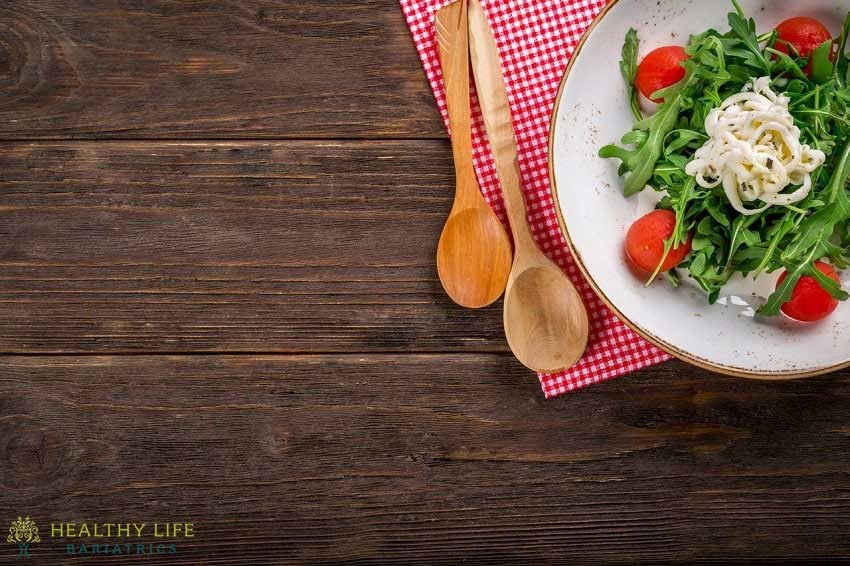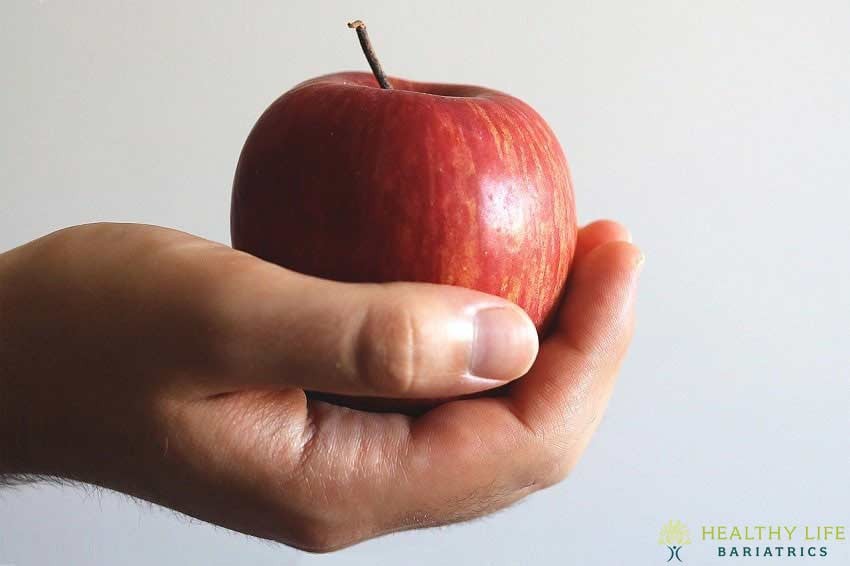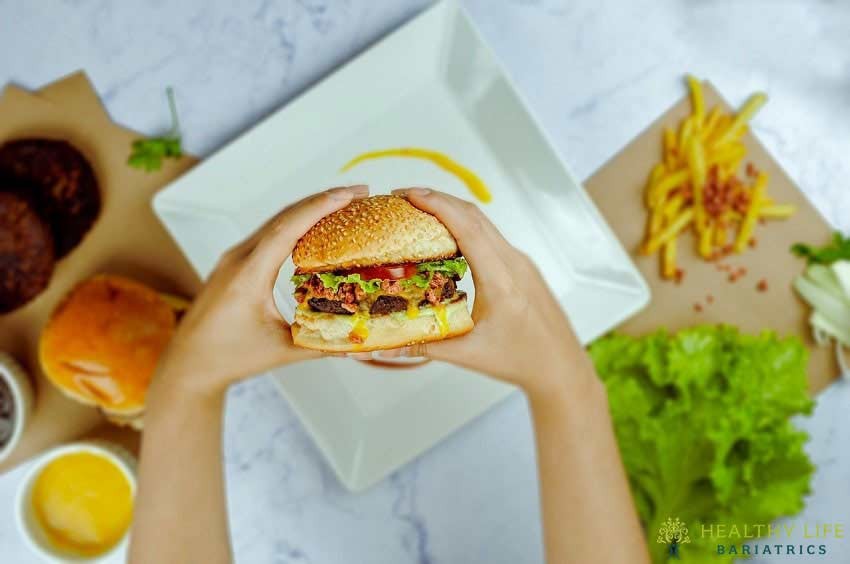- ½ of an apple or ten baby carrots
Foods and Beverages to Avoid on the Gastric Sleeve Pre-Op Diet
The pre-op diet should NOT include gravy, BBQ, or any other sauces, butter, oil, grease, salad dressing, mayonnaise, peanut butter, ketchup, or breaded foods. For taste, spritzing your salad with salad dressing can be acceptable.
You’ll also note that there are no sodas, sweet teas, lattes, or fruit juices on the gastric sleeve pre-op diet. Those will have to be cut out entirely if you want the most success after bariatric surgery.
Essential Vitamins and Supplements
Your bariatric surgeon will advise you to take vitamins and other nutrients to supplement the pre-op diet and give your body what it needs to be healthy.
One popular supplement that is regularly advised as part of a pre-op diet is the calcium tablet (600 to 1200mg per day).
Get Ready for the Post-Surgery Diet
The gastric sleeve pre-op diet sets the stage for adopting healthier habits. These habits are necessary for finding long-term success with bariatric surgery.
After surgery, you will follow the gastric sleeve post-op diet.
For the first week following your procedure, you’ll continue consuming clear liquids as you did in the days preceding surgery. This clear liquid diet helps to avoid postoperative complications, such as gastric leakage, bowel obstruction, dehydration, constipation, and diarrhea.
Drinking clear liquids also gives your body time to heal. The post-op diet will contribute to adequate healing as well.
During this time, drink plenty of clear liquids. Try not to drink anything containing sugar. Consuming sugar as a gastric sleeve patient can leave you open to suffering from dumping syndrome.
What is Dumping Syndrome?
This condition is common with some bariatric surgeries and occurs when sugar enters the small intestine too rapidly. This results in stomach upset, fatigue, diarrhea, and vomiting in some cases.
Another reason to stay away from sugar is that it’s filled with empty calories. Try to minimize or eliminate sugar from your diet now and in the future for the most long-term success.
During week two after gastric sleeve surgery, you will be placed on a full liquid diet, where you will find yourself consuming protein shakes, instant breakfast drinks, and thin broths or soft soups. You can also drink unsweetened milk, sugar-free nonfat pudding, nonfat plain Greek yogurt, hot cereal (thinned), and sugar-free sorbet or ice cream.
During week three, you will begin adding pureed foods to your daily diet. For best results, reintroduce foods to your diet slowly, and chew slowly as well. You’ll want to masticate each bite so that you get every vitamin and nutrient from the healthy foods you eat. Ideally, you’ll want to chew your food at least twenty-five times if you can.
Foods that are acceptable during week three include soup, cottage cheese, mashed bananas, cooked white fish, and silken tofu.
In the fourth week, you can introduce solid foods to your diet. Stick to healthy foods like well-cooked chicken, vegetables, sweet potatoes, fruit, low-sugar cereal, and low-fat cheese.
Stay away from pasta, high-carb options, and white potatoes to maximize your weight loss one month post-gastric sleeve surgery.
How to Stay on Track with Your Pre-Op Gastric Sleeve Diet








